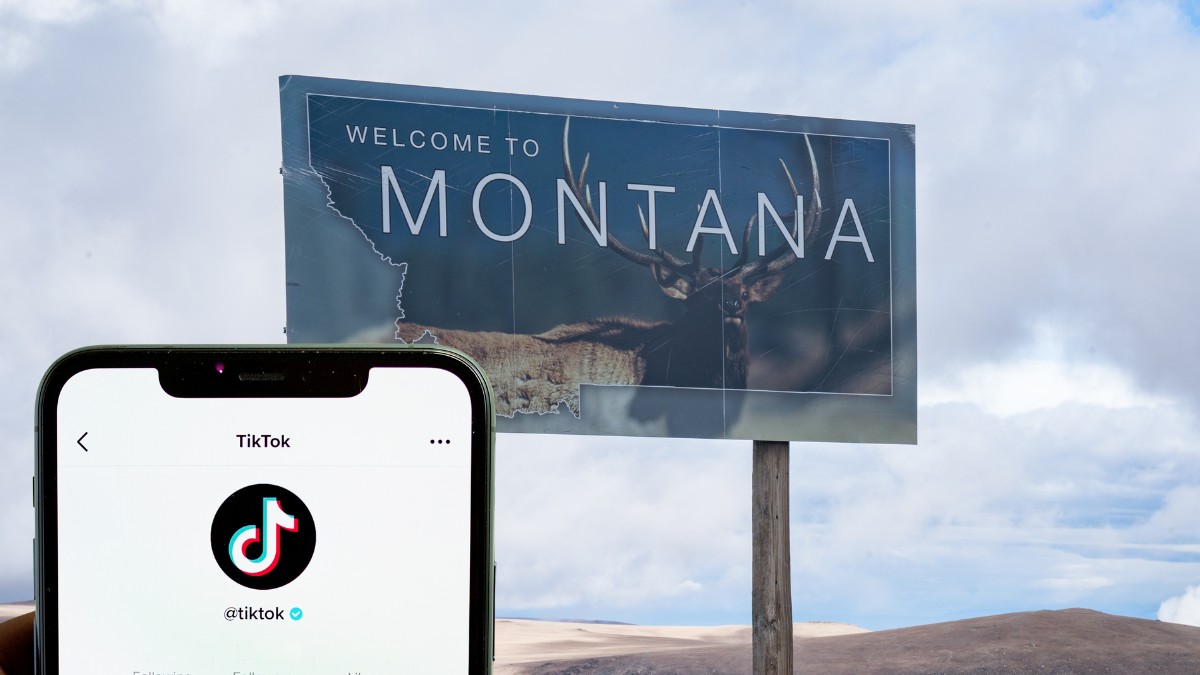In this article, we’ll delve into the unfolding saga of Montana’s ground-breaking step towards privacy protection as it becomes the first state to outlaw the popular social media app, TikTok. Governor Greg Gianforte’s decision, which took effect following the signing of a controversial new bill, has set a precedent that other states may soon follow.
Key Takeaways
- Montana becomes the first US state to ban TikTok, with a law that also restricts the ability to download the app.
- Governor Gianforte praises the law’s privacy protections, citing concerns over data privacy and information collection by the Chinese Communist Party.
- TikTok’s spokesperson, Brooke Oberwetter, called the bill “unlawful,” vowing to defend the rights of their users in and outside Montana.
- Penalties for violations could amount to $10,000 per offense, enforced by the Montana Justice Department.
- Telegram, WeChat, and the shopping app Temu, along with other apps, are also banned from all government devices in Montana, marking a wider targeting of apps with overseas connections.
The Historic Decision: Montana Bans TikTok
In an unprecedented move that’s already causing a stir across the nation, Montana Governor Greg Gianforte has signed into law a ban on the widely used social media app TikTok.
Breaking new ground in terms of state intervention on social media access, Montana is the first state to enact such legislation.
The law, put into effect last month, outlaws app stores from providing users with the option to download TikTok and bars the company from operating within the state’s borders.
This sweeping action comes on the heels of growing concerns regarding data privacy and the use of personal information by foreign entities.
Governor Gianforte has lauded the new law for its robust privacy safeguards, echoing widespread fears about data collection by the Chinese Communist Party.
TikTok’s Response: Calling Out Unlawful Actions
Not surprisingly, this audacious decision has sparked a fierce backlash from TikTok.
Brooke Oberwetter, a spokesperson for the social media giant, has vehemently decried the new law as “unlawful”.
She underscored that TikTok offers a critical platform that enables hundreds of thousands of Montanans to express themselves, earn their livelihoods, and find a sense of community.
Oberwetter affirmed the company’s commitment to its users, vowing to continue to fight for their rights within and outside Montana’s borders.
She further questioned the feasibility of implementing such a ban, accusing the law’s proponents of attempting to muzzle American voices without any tangible plan for enforcement.
In the Line of Fire: Other Apps on the Montana Hit List
Montana’s hardline stance against TikTok isn’t an isolated incident.
In an unexpected development, the Governor’s ban has extended to include other popular apps such as Telegram, WeChat, and the shopping app Temu.
Governor Gianforte has expressed concerns about these apps’ ties to foreign adversaries and directed that they be removed from all government devices and prohibited from conducting any state-related business.
The expansive nature of this ban is noteworthy, with a clear emphasis on apps associated with China.
However, Telegram, despite being founded in Russia and currently headquartered in Dubai, has also been targeted.
Penalties and Enforcement: The Price of Defiance
The new Montana law doesn’t mince words when it comes to violations of the ban.
Every instance where a user is offered the opportunity to download the app constitutes a violation, carrying with it a hefty penalty of $10,000.
Enforcement of these penalties is under the jurisdiction of the Montana Justice Department, suggesting a serious commitment to uphold the ban.
Echoes Across the Nation: Implications of Montana’s Bold Move
As the dust settles, the wider implications of Montana’s bold move are beginning to emerge.
While Montana is the first state to implement such a ban for all its residents, limited bans have already been put in place at both federal and state levels for government-owned devices and networks.
Last year, President Joe Biden prohibited nearly 4 million federal employees from using TikTok on devices owned by federal agencies.
With Montana setting the pace, it remains to be seen whether other states will follow suit.
Montana’s ban brings to the forefront critical questions about data privacy, the role of foreign apps, and the boundaries of free speech.
Conclusion
As Montana takes this trailblazing step, many questions remain. Will other states follow suit, given rising privacy concerns?
How will this new law navigate the inevitable legal battles claiming infringement of free speech?
And lastly, how will users and the tech companies themselves respond to this unprecedented move?
This radical legislation has already sparked a nation-wide conversation about data privacy and the role of foreign apps.
It’s a story that is far from its final chapter.
As we watch the drama unfold, one thing is clear: the landscape of social media use in America is changing, and Montana is leading the charge.
 Sections of this topic
Sections of this topic
















